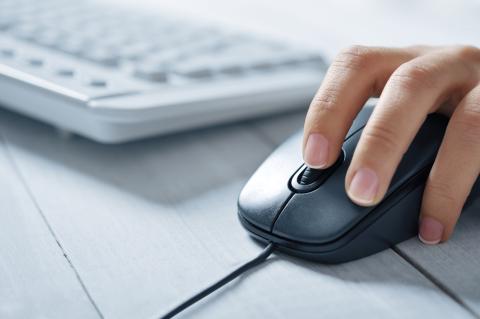West Nile Virus: Reporting and Surveillance
West Nile virus is a category II reportable condition in Wisconsin. Health care providers and laboratories should report to the patient's local public health department:
- Electronically, through the Wisconsin Electronic Disease Surveillance System (WEDSS).
- By calling the Bureau of Communicable Diseases at 608-267-9003.
Reporting should be completed within 72 hours upon recognition of a case.
For more information, visit the DHS Disease Reporting page.
DHS surveillance resources
- Arboviral Infection EpiNet, P-01930 (PDF): An arboviral infection case reporting and investigation protocol for health professionals.
- Arbovirus Management Protocol, P-00894 (PDF): Information for arboviral disease management, including surveillance, testing, reporting, and follow-up, in humans and animals.
- Vectorborne Disease Toolkit, P-01109 (PDF): Information on preparing for and responding to vectorborne disease for local governments, health departments, and citizens in Wisconsin.
Provider resources
- Clinical Signs and Symptoms of West Nile Virus Disease: Clinical presentation and assessment from the CDC (Centers for Disease Control and Prevention).
- Clinical Testing and Diagnosis for West Nile Virus Disease: Recommended testing for West Nile virus diagnosis from the CDC.
- West Nile Virus Diagnostic Testing Algorithm (PDF): A clinical decision-making tool describing risk factors, clinical considerations, and diagnostic testing options for West Nile virus.
- Diagnosis and Management of West Nile Virus: A Case-Based Approach: West Nile Virus Clinician Training from Medscape.
Laboratory diagnosis of West Nile virus most often involves the detection of West Nile virus-specific IgM antibodies in serum or cerebrospinal fluid (CSF). IgM antibodies are typically detectable 3-8 days after illness onset. Negative IgM results in specimens collected within the first 8 days of illness cannot rule out West Nile virus infection, and repeat IgM testing in a later specimen may be indicated.
Positive West Nile virus IgM serum or CSF can sometimes be a result of cross-reactive antibodies or from non-specific reactivity. To confirm the specific infecting virus, plaque-reduction neutralization testing (PRNT) can be performed at CDC. PRNTs can also confirm acute infection by demonstrating a fourfold or greater change in West Nile virus-specific neutralizing antibody titer between acute and convalescent serum samples collected 2-4 weeks apart.
Molecular testing (for example, RT-PCR) for detection of West Nile virus is not routinely recommended because of low sensitivity. RT-PCR may be useful, however, for immunocompromised patients who can have a delayed or absent antibody response and prolonged viremia.
West Nile virus and other arbovirus testing at the Wisconsin State Laboratory of Hygiene
If West Nile virus infection is suspected, concurrent testing for other domestic arboviruses should be considered, since clinical features of these viruses overlap. The Wisconsin State Laboratory of Hygiene (WSLH) offers an arbovirus IgM antibody panel, which includes IgM tests for West Nile, St. Louis encephalitis, Jamestown Canyon, La Crosse encephalitis, Eastern equine encephalitis, and Powassan viruses.
The WSLH arbovirus IgM antibody panel screens for evidence of infection through IgM antibody-capture enzyme-linked immunosorbent assay or microsphere immunoassay performed on serum or CSF. The WSLH will automatically forward specimens with positive IgM results to CDC for confirmatory PRNT.
The arbovirus IgM antibody panel is available at the WSLH either fee-for-service (no prior approval needed) or fee-exempt (prior approval needed).
Providers may request fee-exempt arbovirus IgM testing for patients who:
- Would not otherwise have access to testing for financial reasons (for example, lack insurance coverage).
Public health officials may request fee-exempt arbovirus IgM testing for patients with:
- Evidence of an arboviral infection who are part of a public health investigation.
To request fee-exempt testing at WSLH, contact a DPH vectorborne disease epidemiologist at 608-267-9003 or email DHSDPHBCD@dhs.wisconsin.gov prior to specimen submission.
Instructions for collection and shipping of clinical specimens to WSLH:
- Submit 2-5 mL of serum and/or ≥1 mL of CSF in sterile, screw-capped vials on cold packs using a WSLH kit #22 or equivalent within five days of collection. If shipping more than five days after collection, freeze specimen at -20°C and ship on dry ice. It is recommended that a paired serum specimen be submitted with a CSF specimen. Specimens should be triple packages as a Category B Biological Substance (include UN3373 label).
- Fee-exempt testing submissions must include a WSLH Enhanced Wisconsin Arbovirus Surveillance form provided by a DPH vectorborne disease epidemiologist in addition to the WSLH Requisition Form B.
- Fee-for-service testing submissions must include a WSLH CDD Requisition Form B. Please contact the WSLH Clinical Orders at 800-862-1088 or 608-224-4275 to obtain the WSLH CDD Requisition Form B and to order specimen shipping kits.
- It is essential that the lab requisition form be as complete as possible, including patient name, city, date of birth, specimen type, submitting agency, onset date, signs and symptoms, collection date, and recent travel history. Note: Testing for West Nile virus may be delayed on specimens missing the above data until information is available.
- Ship specimens with the appropriate, completed forms to:
Wisconsin State Laboratory of Hygiene
2601 Agriculture Drive
PO Box 7904
Madison, WI 53718
Customer Service: 800-862-1013
Clinical diagnosis of West Nile virus can be difficult since many of the signs and symptoms of West Nile virus are similar to other viral infections.
A patient's clinical presentation, timing of illness, and risk activities can help to inform a preliminary diagnosis prior to laboratory confirmation.
There is no specific treatment for West Nile virus. Over-the-counter pain relievers may be given to relieve the symptoms. In severe cases, patients may need to be hospitalized to receive supportive care.
Various drugs have been evaluated or empirically used for West Nile virus treatment. However, none has shown evidence of specific benefit. For more information on clinical management of West Nile virus, visit CDC's Treatment and Prevention of West Nile Virus Disease.
Questions about illnesses spread by mosquitoes?
Contact us by phone at 608-267-9003 or fax: 608-261-4976.

